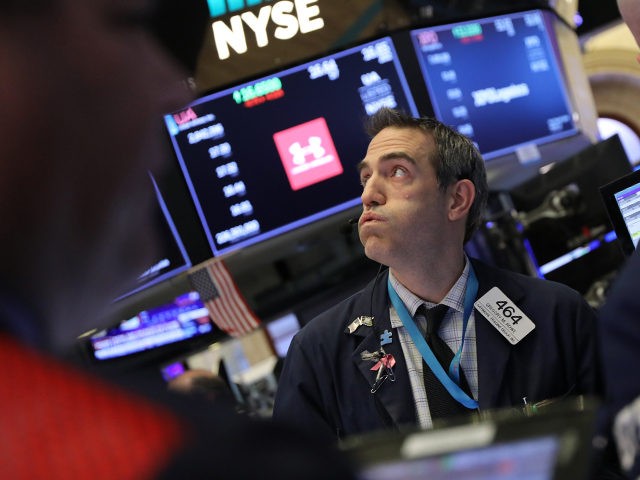The U.S. stock market saw one of its worst day of the year Monday after China announced a new round of tariff hikes, raising fears that a tit-for-tat trade war could hurt earnings at some of the largest companies in the U.S.
The Dow Jones Industrial Average fell 617 points, or around 2.4 percent. That was the biggest one-day loss since the market headed higher in January after an end of year sell-off.
The S&P 500 declined by 2.4 percent. The Nasdaq Composite fell 3.4 percent.
Amazon shares were off 3.5, even though the company has very little direct exposure to the Chinese market. Higher U.S. tariffs, however, could put pressure on Amazon’s margins if it is forced to absorb their cost and cannot pass them on to customers.
Shares of Apple, which suffered a legal setback in the Supreme Court Monday and assembles almost off of its merchandise in China, were down by nearly 6 percent.
Caterpillar, which has a big business in China, fell 4.6 percent. Boeing dropped 4.8 percent.
The concern was not just with global companies, however. Many economists think that the trade dispute could slow growth around the globe, which would in turn slow demand for U.S. exports. And slower U.S. economic growth could even hurt domestically focused companies. The Russell 2000, which is comprised of smaller companies that primarily sell into the U.S. market, fell 3.2 percent.
Most Wall Street economists do not expect the hike from 10 percent to 25 percent to weigh all that much on economic growth. It is the threat to impose tariffs on the $300 billion or so remaining imports from China that cause the greatest concerns. China’s retaliation on Monday is seen as raising the odds that the Trump administration will move forward with another round of tariffs.
Many of those concerns may be overstated. Many economists predicted the tariffs imposed on steel, aluminum, and Chinese imports last year would have much bigger economic effects than they have. Growth in the first quarter of the year was stronger than expected, unemployment fell to the lowest level in half a century, and prices rose by less than expected.

COMMENTS
Please let us know if you're having issues with commenting.